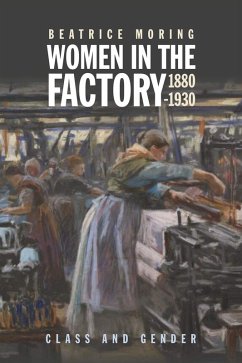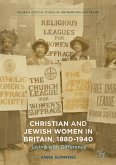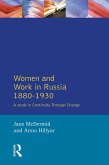A rich and detailed picture, across Britain and many other European countries, of the nature of women's factory work, the problems which arose and how women factory inspectors understood and reacted to the problems.
Based on extensive original archival research both in Britain and in many European countries, this book is a comparative study of the large numbers of women who were engaged in industrial work in the western world in the late nineteenth and the early twentieth century, that is at a time when the industrial revolution was established and the problems caused by industrial work had become part of political debate and social discourse worldwide. It analyses the scope of female factory work, what the conditions were in such work, and what the motivations were for women to enter such employment. It reveals the composition of the female workforce as to age and marital status.
In addition, it considers the first generation of female industrial inspectors, outlining the background of these inspectors, assessing to what extent were they were capable of taking on the role of protectors of women in manual work, and discussing the actions and attitudes of the female inspectors as recorded in inspection reports, biographies and contemporary discourse. Overall, the book presents a rich, detailed, comparative picture of women's factory work, contributing much to the understanding of the history of gender and class.
Based on extensive original archival research both in Britain and in many European countries, this book is a comparative study of the large numbers of women who were engaged in industrial work in the western world in the late nineteenth and the early twentieth century, that is at a time when the industrial revolution was established and the problems caused by industrial work had become part of political debate and social discourse worldwide. It analyses the scope of female factory work, what the conditions were in such work, and what the motivations were for women to enter such employment. It reveals the composition of the female workforce as to age and marital status.
In addition, it considers the first generation of female industrial inspectors, outlining the background of these inspectors, assessing to what extent were they were capable of taking on the role of protectors of women in manual work, and discussing the actions and attitudes of the female inspectors as recorded in inspection reports, biographies and contemporary discourse. Overall, the book presents a rich, detailed, comparative picture of women's factory work, contributing much to the understanding of the history of gender and class.
Dieser Download kann aus rechtlichen Gründen nur mit Rechnungsadresse in A, D ausgeliefert werden.









